40 years on: 6 things you possibly didn't know about Marc Bolan
It was 40 years ago on 17 September that Marc Bolan died in a car crash in southwest London at the appallingly young age of 29. To mark the anniversary, BBC Four have made a new film, Marc Bolan: Cosmic Dancer(broadcast on 15 September), produced and directed by Jeremy Marre, and featuring new interviews with those who knew him best - his partner Gloria Jones, producer Tony Visconti and manager Simon Napier-Bell.
For the uninitiated, it reveals much about one of the UK's finest pop stars, and there's new insight to intrigue even the most hardcore Bolan fans. Here's what we learned...
Read More:1. Even as a child he slipped into invented characters
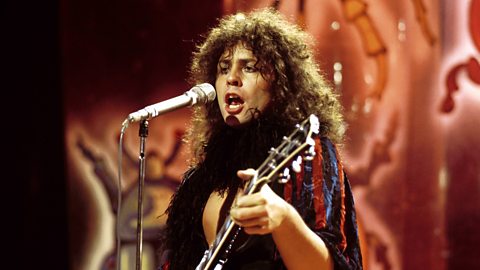
Marc Bolan, born Mark Feld in Hackney, London, always knew he was going to be a pop star, even when he was kid. He was fascinated by early rock'n'roll stars like Eddie Cochran, Little Richardand Elvis and says in the film, "I always knew I was different - right from the start, right from the moment I was born. When I was younger, I certainly thought I was a kind of superior being."
Later, like Bowie, he became a master of reinvention - he was first a mod, then a hippyish singer-songwriter, before coming into full bloom as a glittering glam rock superstar. But we find out here that Marc's desire to invent characters for himself started far earlier - when he was a child. His brother, Harry, says: "If Marc knew he was going to be in trouble - if someone picked on him - he'd take on a character that was stronger than the guy who was having a go at him. The character he would use for this bravado was Mighty Joe Young [from the 1949 fantasy film of the same name]. He dealt with life in his own mind."
2. He worshiped Beau Brummel, a Regency-era dandy
Aside from his fascination with early rock'n'roll, Marc looked to books - particularly The Lord of the Rings - for inspiration, and also intriguing figures from British history. One man he became obsessed with was Beau Brummell (1788-1840), a fashion icon from Regency England who is credited with establishing the modern men's suit, worn with a necktie, as a means of standard, formal dress.
"Ninety-five per cent of my success is the way I look - look and presence is what people pick up on," he says in the film, and he learned that from Brummell, who he'd read about as a teenager. Biographer Paul Roland explains more: "The influence of Beau Brummell - the character and the book - was profound. Marc got quite a lot of his attitude from Beau Brummell, who saw himself as a living work of art, and that's what Bolan saw himself as. He identified with Brummell - his background, his attitude and, of course, his sartorial elegance."
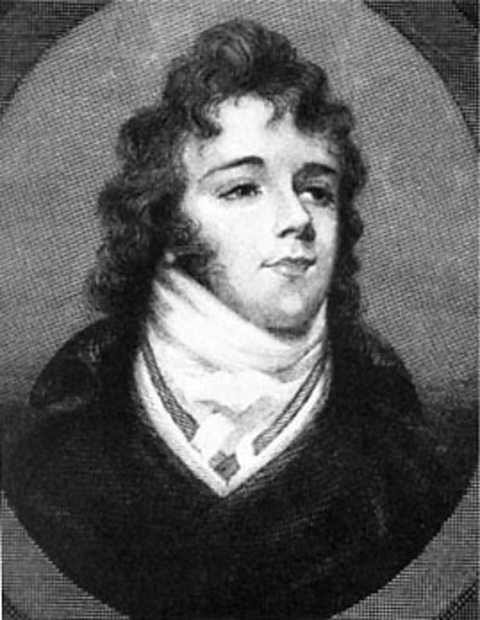
3. His first band had a song banned by the BBC
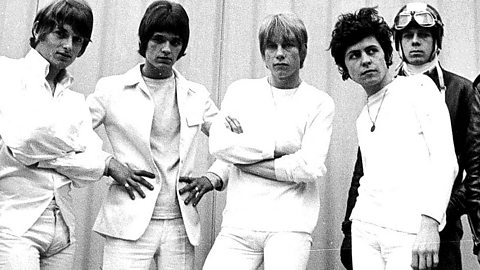
Mark met manager Simon Napier-Bell in 1966, and they initially set about making Marc a star by promoting him a singer-songwriter in the mould of Bob Dylan. When his early singles flopped, Napier-Bell suggested he join a beat group he was also managing, John's Children, above. He learned much about performance from their outrageous live show, but their life as a band was short-lived. In 1967, they released the Bolan-penned single Desdemona, which contained the lyric, "Lift up your skirt and fly" - about a witch, Marc claimed, but the line aroused suspicions. The BBC banned the song, and the name of their only album, Orgasm, caused issues in the US, too. In 1968, the band called it quits, although they reformed between 2006-2013, long after Marc had died.
4. Tyrannosaurus Rex headlined the first Glastonbury

This isn't mentioned in the film, but it's a great pop fact: The band that made Marc's name, Tyrannosaurus Rex (later shortened to T. Rex), were the headliners of the first-ever Glastonbury festival, which took place just a few days after Jimi Hendrix died in September, 1970. Initially, The Kinkswere supposed to top the bill, but they pulled out, so Michael Eavis asked Tyrannosaurus Rex to step in. Back then, Glastonbury wasn't the huge media event it is now, but it was still a great booking for the group and it secured them a place in British music history.
5. John Peel called him "a flower child with a knife up his sleeve"
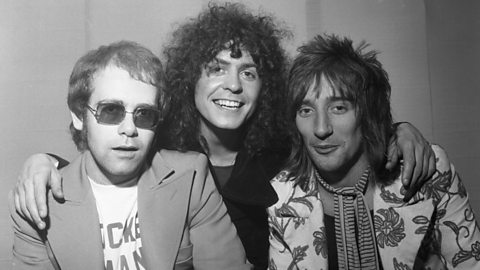
Marc Bolan with Elton John and Rod Stewart, Top of the Pops, 1972
John Peel was a huge supporter of Tyrannosaurus Rex in their early days, and calling Marc "a flower child with a knife up his sleeve" was an observation rather than an insult. He, like many others, noticed that Bolan was fiercely ambitious and going places. And it wasn't so much that he was a fake hippy, although he had no truck with counter-culture politics, more that he couldn't be contained by any scene. His masterstroke was not so much to move things on from late-60s folk-rock, but to move back in time - to primal early rock'n'roll. Tyrannosaurus Rex became T. Rex, Marc dabbed some glitter on his face, and there began an extraordinary run of impeccable glam rock singles, including Ride a White Swan (their breakthrough hit in 1970) and, all in 1971, Hot Love, Get It On and Jeepster.
6. He freakishly foresaw the circumstances of his death

Marc feared a premature death - hence he never learned to drive - and he also believed he would die young, once saying: "The thing about success, certainly in the rock'n'roll business, is that it gives you an incredible amount, but what it takes away is irreplaceable and sometimes I get a funny feeling that I shan't be here very long. And I'm not talking in terms of things like success. It frightens me sometimes."
If that wasn't freakish enough, in the film Simon Napier-Bell says the following: "Chet Baker was a hero of his, and James Dean. And I said, 'Well, be careful having James Dean as a hero, because you might end up dying in a Porsche. And he said, 'Oh, I'm just tiny, I'd like to die in a Mini.'"
It was in a Mini that he died, on that tragic night in September 1977.
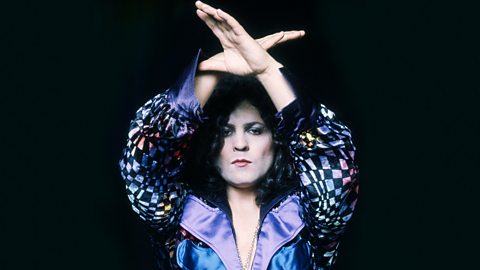

Comments